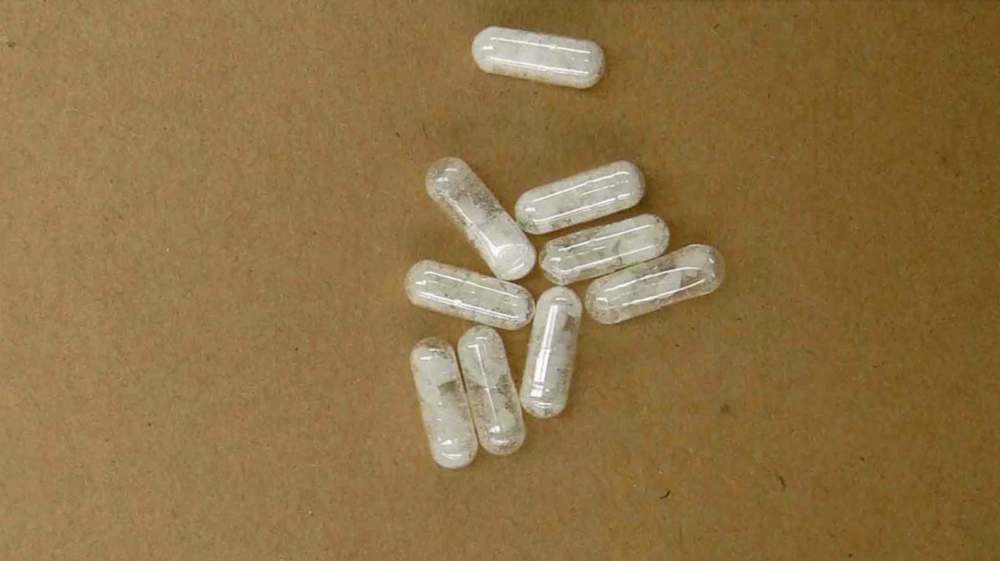Police investigating whether new designer hallucinogen has hit Winnipeg streets
Health Canada testing whether seized substance is so-called zombie drug flakka
Advertisement
Read this article for free:
or
Already have an account? Log in here »
To continue reading, please subscribe:
Monthly Digital Subscription
$0 for the first 4 weeks*
- Enjoy unlimited reading on winnipegfreepress.com
- Read the E-Edition, our digital replica newspaper
- Access News Break, our award-winning app
- Play interactive puzzles
*No charge for 4 weeks then price increases to the regular rate of $19.00 plus GST every four weeks. Offer available to new and qualified returning subscribers only. Cancel any time.
Monthly Digital Subscription
$4.75/week*
- Enjoy unlimited reading on winnipegfreepress.com
- Read the E-Edition, our digital replica newspaper
- Access News Break, our award-winning app
- Play interactive puzzles
*Billed as $19 plus GST every four weeks. Cancel any time.
To continue reading, please subscribe:
Add Free Press access to your Brandon Sun subscription for only an additional
$1 for the first 4 weeks*
*Your next subscription payment will increase by $1.00 and you will be charged $16.99 plus GST for four weeks. After four weeks, your payment will increase to $23.99 plus GST every four weeks.
Read unlimited articles for free today:
or
Already have an account? Log in here »
Hey there, time traveller!
This article was published 02/11/2017 (2954 days ago), so information in it may no longer be current.
If the drug flakka is in Winnipeg, it might explain the bizarre encounter the Bear Clan street patrol witnessed in the North End this summer.
“We came across a 20-year-old woman on Flora (Avenue) and Powers (Street). She was yelling and screaming and saying all kinds of weird things,” Bear Clan council member and co-founder James Favel said Thursday, recalling the encounter outside a school.
Bear Clan volunteers were gathering for their evening patrol when someone yelled for help “with a crazy lady on the street.”

When the patrol reached the corner, they saw a woman, obviously impaired, but not with any intoxicant they’d ever seen before.
“Her body postures were… she was bending over to where her head was nearly to the ground and then snap back. Her arms were flailing. She was playing with a McDonald’s cup, with mud it in. She’d dug up (some top soil) and put it in the cup and was putting water in the cup from the puddle on the street,” Favel recalled.
The woman’s eyes were open but none of the Bear Clan patrol — about 20 volunteers that evening — could get through to her. They’re not even sure the woman was aware of their presence.
In the end, someone called 911 for help, Favel said.
That was months ago and nobody’s raised flakka publicly since then, until this week when police made a drug bust and wondered if it might be the same stuff. Flakka is also called gravel and resembles crushed glass shards.
“The Winnipeg Police Service is aware of the drug flakka and we currently have a seizure in hand that may possibly be flakka,” police spokesman Const. Jay Murray said Thursday.
“I stress it has not yet been confirmed and it is subject to testing by Health Canada,” he said.
If confirmed, it would mark the first seizure of flakka in Winnipeg.
Authorities know the drug is dangerous and it has been characterized as similar to so-called bath salts, a synthetic designer powder made with various amphetamine-like chemicals that causes increased heart rate, hallucinations, paranoia and delusions.
In Winnipeg, authorities say the biggest challenge is trying to talk down someone on a drug such as that, when there’s no way to reach them with words.
“Flakka certainly presents challenges, especially in terms of how we communicate or deal with someone who is high on a substance like that. There are times, unfortunately, where officers are required to use force on someone who exhibits behaviours similar to that of what is expected from flakka, bath salts or methamphetamine,” Murray said.
The Winnipeg Regional Health Authority said their experts have no hands-on knowledge with flakka.
Rolling Stone magazine published a primer on the so-called zombie drug in 2016, describing flakka as highly addictive designer drug that causes paranoia and psychosis. Writer Annamarya Scaccia linked it to news reports involving a 19-year old Florida university student who stabbed a married couple to death and then gnawed at the male victim’s face. Police in Jupiter Florida believed the student was high on flakka at the time.
alexandra.paul@freepress.mb.ca


